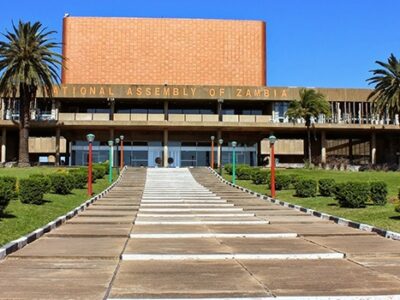The involvement of both state and non-state actors in upholding freedom of expression and other human rights is crucial for fostering a free society.
Historically, reaching a consensus on media rights issues has led to significant progress, exemplified by the enactment of the Access to Information (ATI) law, which has proven beneficial for Zambia.
Despite their shared interests in promoting democratic governance, government, civil society organizations (CSOs), and political parties often experience conflicts.
Effective collaboration among these actors is essential for achieving key democratic milestones and maintaining a robust democratic system.
From the perspective of USAID Zambia, the country has been a regional model for peaceful and multi-party transitions over the past 30 years.
However, persistent issues such as corruption and democratic weaknesses threaten this stability.
The August 2021 elections marked Zambia’s third transition of power, creating opportunities for democratic governance and fiscal reform.
This transition also set high public expectations for the government to deliver on democracy’s promises.
USAID Zambia’s analysis indicates that Zambia’s political landscape remains vulnerable.
Economic and societal discord, coupled with a concentration of political and economic power among elites, exacerbates this vulnerability.
Read more: Crackdown on online media, Zambia’s digital rights at a crossroads, by Kenneth Lutena
Additionally, a high public debt burden further complicates the situation.
While state and non-state actors are expected to work together to achieve democratic goals, conflicting interests often arise.
George Hamusunga, in his write-up “Navigating Political Change: Civil Society Experience in Zambia,” published by the Zambia National Education Coalition (ZANEC), delves into the complexities faced by these actors in pursuing common objectives.
Hamusunga highlights a peak in the restriction of civic space during 2016-2017, when CSO activists were arrested for demanding public accountability and increased oversight of government expenditures, particularly public procurement processes.
Journalists also faced prosecution for accessing and publishing unauthorized public information.
During this period, three private broadcasting stations had their licenses suspended, and some opposition members were arbitrarily detained.
Despite these challenges, civil society organizations played a crucial role in supporting then-opposition leader President Hichilema, who faced significant abuses, including 120 days of incarceration.
This support helped build a strong relationship between Hichilema and civil society, with Hichilema becoming an advocate for many civil society positions once he assumed the presidency.
However, Hamusunga observes that some civil society activists’ excessive alignment with the new government has compromised their independent voices.
Despite this, many organizations effectively leveraged the political will of the new government, issuing significant statements about their expectations and participating in key events such as budget symposiums and policy dialogues.
Hamusunga cautions that aligning civil society organizations with opposition political parties can have serious short-term consequences.
He argues that maintaining neutrality is the most sustainable and effective strategy for civil society in the long term.
WARNING! All rights reserved. This material, and other digital content on this website, may not be reproduced, published, broadcast, rewritten or redistributed in whole or in part without prior express permission from ZAMBIA MONITOR.












Comments